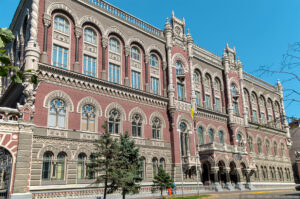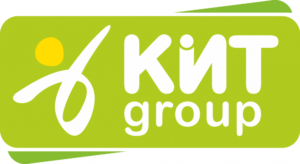
The National Bank of Ukraine (NBU) fined FINACO Financial Company LLC (Kyiv) UAH 1.28 million for violating the requirements of the law on the prevention and counteraction of money laundering and financial monitoring.
According to a statement on the regulator’s website, the fine is related to the improper implementation of internal documents on AML/CFT issues, shortcomings in the work of the responsible employee, failure to provide reports and documents upon request by the NBU, violation of the risk-based approach, improper verification of clients, as well as violation of the procedure for preparing reports and submitting a list of clients. A separate violation of the established procedure for notifying changes in information was noted.
Along with this, in November 2025, the NBU applied measures of influence to other market participants, including fining Pivdenny Bank UAH 18.5 million, Lviv Bank UAH 200,000, and FC ATLANA LLC UAH 595,000.
The total amount of fines for the month was UAH 20.57 million.

The National Bank of Ukraine (NBU) fined Pivdenny Bank (Odesa) a total of UAH 18.5 million for violations of legislation in the field of preventing and combating money laundering (AML/CFT) and currency legislation.
According to a statement on the regulator’s website, the bank must pay UAH 17.5 million in fines for improper application of a risk-based approach, improper verification of customers, shortcomings in enhanced verification of high-risk customers, and violation of the procedure for providing information in response to NBU requests.
Separately, Pivdenny Bank was fined UAH 1 million for violating currency supervision requirements, in particular for improper analysis of currency transaction documents and failure to identify currency transaction indicators.
In addition, the NBU issued two written warnings to the bank: for deficiencies in internal documents on AML/CFT and risk management, as well as for errors in statistical reporting on currency transactions.
As reported, in November 2025, the NBU applied sanctions to two banks and two non-bank financial institutions, including fines totaling UAH 20.57 million.

The number of insurance companies in Ukraine in October 2025 decreased by one. At the end of the month, 49 risk insurers and 10 life insurance companies, as well as the Export Credit Agency with special status were operating in the market, according to the website of the National Bank of Ukraine.
According to the NBU, the number of insurance and/or reinsurance brokers has not changed – 45. In October, the regulator received 55 inquiries regarding registration and licensing actions of insurers.
In general, the number of non-banking financial market participants for the month decreased to 787 from 791. In the non-banking market, there were 417 financial companies (there were 418), 102 pawnshops (there were 104), 88 credit unions, one lessor and 74 collection companies. The number of non-banking financial groups increased by one – to 42, banking groups unchanged – 16.

The number of banks in Ukraine in October 2025 has not changed and is 60, according to the website of the National Bank of Ukraine.
According to the regulator, the number of banking groups is also unchanged – 16. 15 payment systems created by residents, including state-owned ones, and 10 international payment systems continue to operate in the payment market.
Among payment service providers there are 16 payment institutions (17 a month earlier), 12 financial institutions authorized to provide payment services, one bank – issuer of electronic money, and one postal operator. Other payment market entities include 49 commercial agents and 32 technological payment service providers.
In October, the NBU received 243 requests for registration and licensing actions, including 41 requests for banks, 131 requests for financial companies, pawnshops and lessors, 55 requests for insurers, 14 requests for credit unions and collection companies, and 2 requests for payment institutions.

Last week, the National Bank of Ukraine (NBU) reduced its sale of dollars on the interbank market by $131.6 million, or 17.9%, to $602.7 million, while the weakening of the hryvnia slowed to 12.8 kopecks from 37.4 kopecks a week earlier.
According to information from the National Bank, during the first four days of last week, the average daily negative balance of currency purchases and sales by legal entities increased to $74.2 million from $36.6 million during the same period a week earlier, totaling $297 million.
At the same time, on the cash market, on the contrary, there was a decrease in currency purchases by the population: from Saturday to Thursday, the negative balance amounted to $21.3 million against $29.6 million the week before last. The purchase of non-cash currency exceeded its sale during all these days.
The official hryvnia-dollar exchange rate, which started last week at 41.6027 UAH/$1, weakened to 41.7607 UAH/$1 over three days but ended the week at the same level.
On the cash market, the dollar exchange rate over the past week fluctuated around the official rate of 41.7565 UAH/$1, and the hryvnia weakened by about 25 kopecks to the following levels: purchase – about 41.70 UAH/$1, and sale – about 41.80 UAH/$1.
At the end of last week, Bloomberg reported pressure from the International Monetary Fund to increase the pace of hryvnia devaluation, but there is no information on the impact of this factor yet, except that on the first trading day of this week, the hryvnia fell slightly to 41.7624 UAH/$1.
“The Ukrainian currency market continues to be influenced by the National Bank of Ukraine’s strategy of controlled flexibility… Since the beginning of October, the hryvnia has been gradually weakening against the dollar. The exchange rate on the cash market is changing at a similar pace,” experts from KYT Group, a major player in the cash currency exchange market, described the situation.
They added that there has been a noticeable increase in demand on the interbank market in October, and the NBU has been forced to increase its interventions. According to experts, this trend is seasonal on the one hand, as companies’ need for currency to make payments increases in the fall, and on the other hand, an additional factor affecting the hryvnia was the intensification of shelling of Ukraine’s energy and gas infrastructure, which led to an increase in imports of gas and energy equipment.
“In the short term (1–1.5 weeks): the base range is 41.4–41.9 UAH/$1, with a probable tendency toward the upper limit of the forecast,” according to the forecast for the cash market provided by KYT Group.
In the medium term (2–3 months), according to its experts, the exchange rate will be in the range of 41.30–42.00 UAH/$1. They believe that if the Fed goes ahead with an October rate cut and the risks of a trade war between the US and China weaken, the fundamental movement of the dollar on the international market may strengthen, which will also affect the exchange rate in Ukraine. However, the domestic Ukrainian context of expectations of continued large-scale shelling of infrastructure and a deterioration in the energy sector, as well as the high demand for growth in import volumes, may contribute to a more rapid strengthening of the dollar on the Ukrainian currency market.
“In the long term (6+ months): the scenario of a gradual devaluation of the hryvnia remains. Provided that international aid continues to flow in at a steady pace, the benchmark is 43.20-44.40 UAH/USD until mid-2026, taking into account the current situation in Ukraine,” according to a comment by KYT Group.
Source: https://bank.gov.ua/ua/markets
https://interfax.com.ua/news/projects/1113033.html

Liberty Finance, one of the largest operators on the Ukrainian currency exchange market, has announced that it has passed an inspection by the National Bank of Ukraine (NBU) and will continue to provide financial services in accordance with current legislation.
“Operations are continuing as usual,” the company said in a statement on its website on Friday, after the National Bank announced the previous evening that it was banning the company and its affiliates from providing payment services through the KYT Group internet services due to the discovery of unlicensed activities in the payment market.
Liberty Finance states that it has not received any official decisions from the regulator, but confirms its willingness to cooperate as an open and transparent company.
“All comments will be taken into account in a timely manner, which will further improve current standards of quality and speed of service,” the website states.
As reported, the NBU stated that Liberty Finance provided payment services for the transfer of funds without opening an account, without a license and without proper registration.
LLC “FC ”Liberty Finance” has two licenses from the National Bank to provide financial services: trading in foreign currency valuables in cash; provision of funds and bank metals on credit. KYT Group also includes the pawnshop KYT Group Plus LLC KYT Group and Company.
According to data from YouControl, the authorized capital of FC Liberty Finance is UAH 25 million, and its equity capital at the beginning of this year was UAH 188.65 million. The company ended last year with a net profit of UAH 45.46 million, compared to UAH 153.92 million a year ago. The item “other income” in cash flows from operating activities in 2024 increased to UAH 29 billion from UAH 21.6 billion in 2023.
Source: https://libertyfinance.com.ua/news/